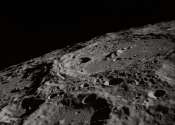Solar eclipse to be seen on January 4, 2011
Some of the world will be able to greet the first part of the new year with a solar eclipse. On the morning of Tuesday, January 4, 2011, an eclipse of the Sun will be widely visible across Europe and as far east as India. ...








